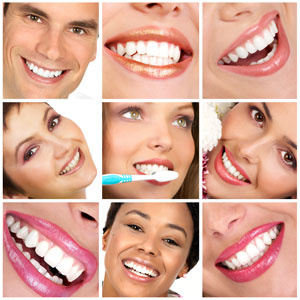
 Who needs a toothbrush, asked a colleague, when chewing gum can fight tooth decay, freshen breath and whiten teeth. Gum-manufacturers further claim their product offers the added bonus of reduced cavities, stronger teeth and lower plaque acid deposit on the teeth; these are claims that have been scientifically proven.
Who needs a toothbrush, asked a colleague, when chewing gum can fight tooth decay, freshen breath and whiten teeth. Gum-manufacturers further claim their product offers the added bonus of reduced cavities, stronger teeth and lower plaque acid deposit on the teeth; these are claims that have been scientifically proven.
Advertisements also hint at the economic and social edge that chewing gives you by helping you concentrate, stay in shape by curbing food cravings, and freshening your breath with the flavour of your — or your partner’s — choice.
It all sounded too good to be true, so I decided to ask some dentists whether gum actually whitens teeth and whether I can invest my toothpaste budget in sugar-free gum. Gum does not whiten, they said, but it does remove superficial staining that may make your teeth appear whiter than before.
“Chewing is a cleansing action that helps remove superficial stains from the teeth, but it does not whiten. It works by simulating salivation, which helps to neutralise plaque acids that deposit and stain teeth and wash out microbes and food particles inside the mouth that cause tooth decay and cavities,” says Dr Mahesh Verma, director and principal, Maulana Azad Institute of Dental Sciences.
According to a study published in the Journal of Dental Research, children who chewed sugar-free gum after meals reduced dental cavities over two years by almost 38.7 per cent, compared to non-chewers. Though this particular study was funded by the gum industry, there are several other studies that show benefits that are almost always connected with increased saliva flow inside the mouth.
Products such as Wrigley’s Orbit and Extra sugar-free chewing gums carry the American Dental Association’s (ADA) ‘Seal of Acceptance’ because they have been clinically proven to reduce the risk of cavities, strengthen teeth and reduce harmful plaque acids. The ADA, however, does not accept the claims of Orbit White, the brand that claims to whiten teeth.
“Sodium peroxide is used to remove superficial stains on the teeth and some toothpastes and gels have added whiteners, all of which have to be spit out after brushing. Hard deposits need to be removed with ultrasonic scalers, so there’s no way in which gum can bleach your teeth and make them sparkling white,” says Verma.
I was categorically asked not to use my toothbrush money on gum. Gum only does half the job. “Sugar-free gums are really effective in generating extra saliva to wash away and
dilute bacterial acid, but it can’t reduce the efficacy of a toothbrush. The mechanical action of brushing not just cleans crevices in the teeth but also massages the gum and cleans the tongue,” says dental surgeon Dr Sushank Umre, head, Dental Aesthetics, Niti Bagh.
So, if you are looking for just washing down food particles, relieving dry mouth discomfort, neutralising plaque acids, reducing plaque deposits that stain teeth and fighting superficial cavities, turn to gum. But for healthy teeth and gums, there’s nothing to beat the brush.
© HT Media